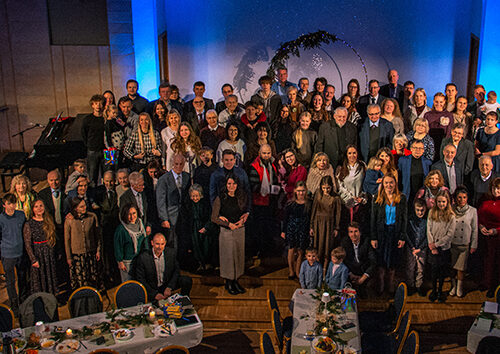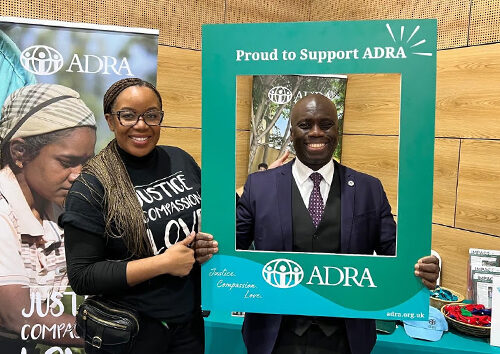31 March 2021 | Tallinn, Estonia [Mervi Kalmus]
I am a fourth-generation Adventist and a pastor’s kid; therefore the communion service has always been a natural part of my life. The words read from the Scripture, the solemn silence of the church, the stack of washing basins in the corner, the sweet taste of the grape juice and the texture of the communion bread – they have marked my Christian journey like little road posts, coming in regular intervals.
This regularity, of course, was interrupted a year ago but I have found with a surprise that the experience of the Last Supper, although altered, has stayed with me.
It was in last March that we organised an online agape feast with my home church. Each of us bought some grape juice and baked unleavened bread so when we gathered on Zoom on a Friday evening, we were prepared. We read about Jesus washing his disciples’ feet, we sang, we ate and we drank and we thanked God for his love. It was not a communion service since communion, by definition, requires a community but it was the best we could do in our isolation to experience and take part in the mystery of salvation, completed long time ago on a Friday afternoon near Jerusalem.
Something of that agape feast touched me very deeply. In fact, it touched me so deeply I resolved to start a little tradition of my own. So, over the last year, whenever I have been able to, I have baked bread on Friday afternoon and have made sure to have some grape juice in my fridge, and as I welcome the Sabbath, I eat the freshly baked bread and drink the juice and I always read – sometimes even with a loud voice although there is no-one with me – the crucifixion Psalm. Jesus’ heartfelt and desperate question „My God, my God, why have you forsaken me?“ has become my weekly companion.
More often than not, I start crying before I can finish Psalm 22. Because sometimes I can picture Jesus so vividly through the description of the torture scene offered by this Psalm. Even the Gospel writers do not describe the horrors of crucifixion and bodily torture as clearly as Psalm 22 does. But sometimes someone else shines through the words of this Psalm – king David. As I read his words, not knowing what kind of calamity led him to write down these brutally honest words, I admire his courage to come to God with his questions and heartache. He was brave to coin these words and the people who came after him were brave to keep his words in the Scripture and not replace them with something more upbeat. And yet other times when I read Psalm 22 on a dark Friday evening I cannot see or hear anybody else in these verses but myself and my own doubts. Why have you forsaken me, God? Why are you so far from my crying? Why have you turned a deaf ear to my pleading? Where are you, anyway? These words have echoed down the history, from the lips of David and Jesus and doubtlessly many other faithful believers, and I can add my voice to this chorus, too. I am in a good company, it turns out.
I have been privileged enough to have taken part in a real communion service last summer – a privilege many of my Adventist brothers and sisters around the world have not had. But my quiet Friday evenings with Psalm 22 and the simple elements of a Jewish dinner have grown to be a vital part of my walk with God. They carry the mystery of salvation, they remind me that Jesus’ death has a direct impact on my life and fate, they also give room for doubt and despair. I will carry on with this tradition even when we are allowed to gather in churches again, in fact, I do not think I will ever give it up. Because through this simple meal and the reading of the Psalm the ordinary and the holy, the common and the transcendental meet and mix in my life. And because through this meal and this Psalm my faith is kept alive and real.
[See also: The Lord’s Supper in Lockdown]
tedNEWS Staff: Victor Hulbert, editor; Deana Stojković, associate editor
119 St Peter’s Street, St Albans, Herts, AL1 3EY, England
E-mail: [email protected]
Website: www.ted.adventist.org
tedNEWS is an information bulletin issued by the communication department of the Seventh-day Adventist Church in the Trans-European Division. Readers are free to republish or share this article with appropriate credit including an active hyperlink to the original article.



